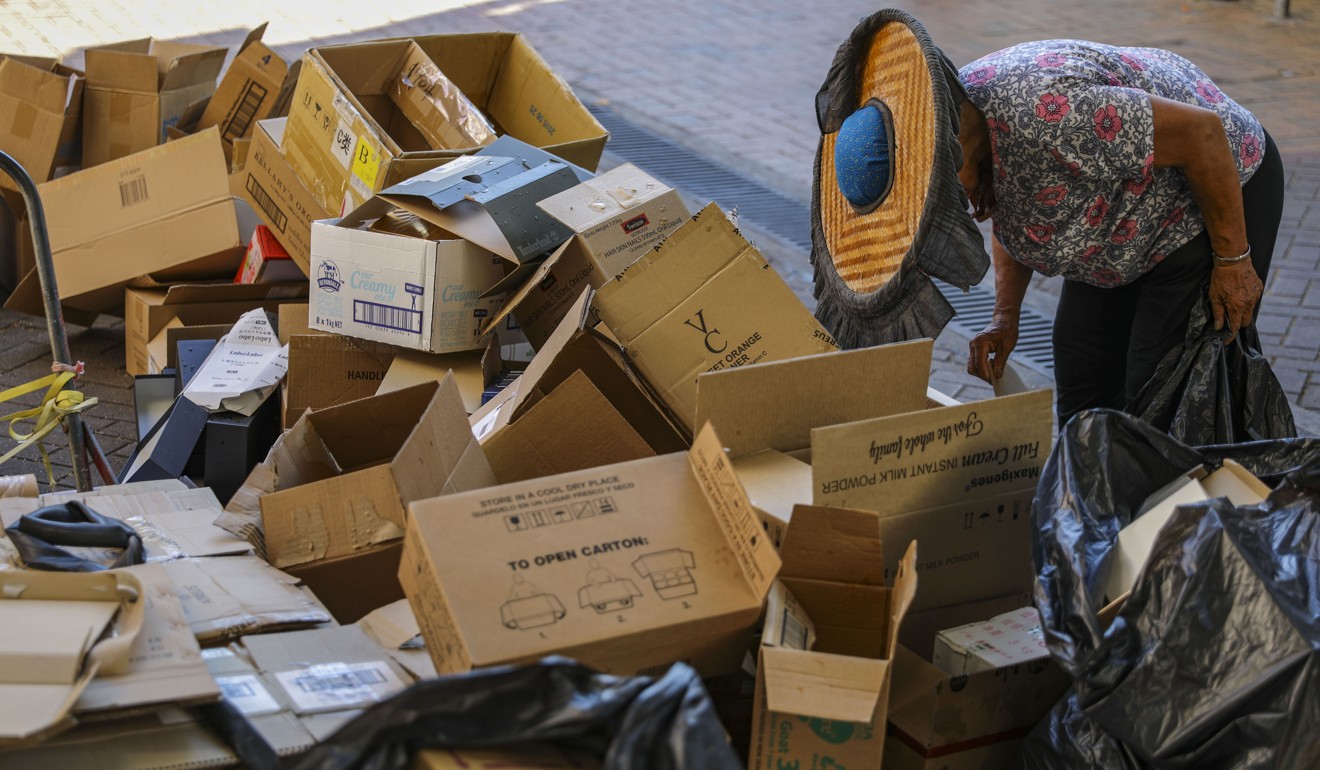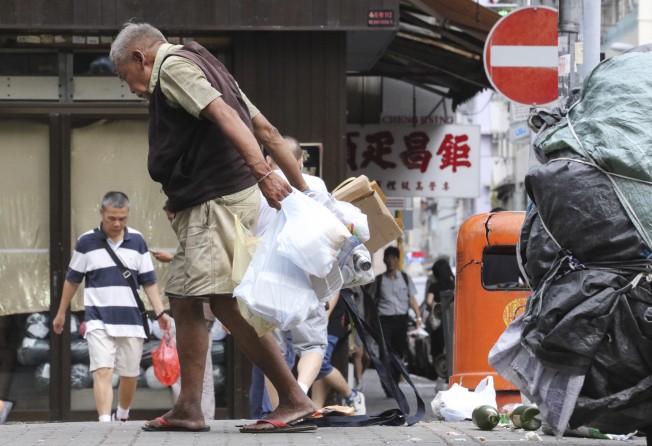
Hong Kong welfare chief Law Chi-kwong hits back at Oxfam over ‘unfair’ income inequality report
Minister says aid agency has not taken into account government help and tax in its wealth gap figures for city – but has done so for other economies

Hong Kong’s welfare minister Law Chi-kwong has hit back at an “unfair” Oxfam report about the city’s worsening income inequality, saying the aid agency has not taken the government’s social help into account in its calculations.
On a blog published on Sunday, the former University of Hong Kong social work academic said he felt forced to clarify “some misunderstandings and false commentaries”.
Dr Law criticised Oxfam for looking only at Hong Kong’s Gini coefficient – an index from 0 to 1 that measures the wealth gap – before tax and social help were taken into account, and comparing it with figures for other countries where these factors were included.

“It is like comparing an apple to an orange. It is not fair,” Law wrote, adding that the budgeted recurrent expenditure on social welfare in the current financial year went up by an “unprecedented” 21.3 per cent from the previous year to HK$79.8 billion.
Last week, Oxfam said in its inequality report that the city’s Gini coefficient was 0.539 in 2016, the highest in 45 years, and one of the “most extreme” among developed economies.
The lower the Gini coefficient, the less the inequality.
The report said the coefficient for Canada was 0.322, 0.337 for Australia, 0.358 for Britain, 0.411 for the United States and 0.4578 for Singapore. Oxfam did not say these figures were after tax and social help, but the Hong Kong index did not include these factors.
In his blog, Law, the secretary for labour and welfare, said the after-tax and social transfer index was 0.473 in 2016, down from 0.475 in both 2006 and 2011, though still higher than the 0.47 in 2001.

If tax and social help were not taken into account, the index had risen over the years but Law said it was mainly because of the city’s ageing population. Old people tended to have lower or even no income, he added, subsequently pushing up the Gini coefficient.
“Like other developed places, Hong Kong is facing a worsening wealth gap. The Hong Kong government, like other governments, is concerned about it,” he said.
“Even if we cannot reverse this situation, we hope to slow it down.”
Law wrote that if only those who had engaged in economic activities were considered, and if tax and social help had been taken into account, the Gini coefficient for 2011 would be 0.43, dropping to 0.422 in 2016.
The minister said the drop was likely because the statutory hourly minimum wage of HK$28 (US$$3.59) came into force in 2011. According to a source, the minimum wage was expected to rise from HK$34.50 to HK$37.50 next year, a new level unionists said was still so low it was “shameful”.
An Oxfam spokesman, however, said on Sunday that even after tax and social assistance were considered, the Gini coefficient of 0.473 was still the highest among developed economies.
“While Dr Law said the budget on social welfare has an increase of 21.3 per cent in 2018-19, we have to be clear that it is only the increase in actual spending,” he said.
“The percentage for social welfare spending to public spending, 16.5 per cent, is still in a very low position. We appeal to the government to increase this percentage to support more social welfare and services.
“Our government now has a HK$1.1 trillion reserve and it has all the power and resources to increase its recurrent spending on education, health care and social welfare. This is critical in helping to reduce inequality in Hong Kong.”
In its report, Oxfam called on the government to set aside an extra HK$36.7 billion in next year’s budget to ease the worsening wealth gap.
It suggested the money be spent over three years to increase old age living allowance, boost nursing home places, offer more subsidised childcare and help ethnic minority students learn Chinese.
One person in five in Hong Kong, or 1.35 million people, lives below the poverty line, official figures released last year showed. The line for a single-person household was an income of HK$4,000 a month or HK$9,000 for a two-person household.
Hong Kong’s sky-high property prices mean that owning a home remains a remote dream for the city’s grass-roots families. Official figures show that about 210,000 people live in some 93,000 subdivided homes, often between 100 and 200 sq ft.
Hong Kong’s leader Carrie Lam Cheng Yuet-ngor will deliver her policy address on October 10, and all eyes are on how she will address public discontent on housing and other social issues.